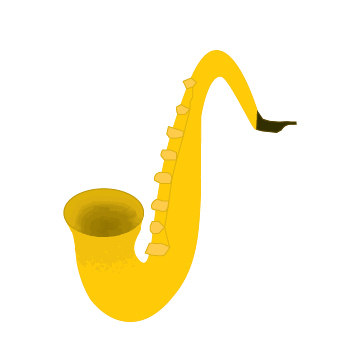
The UW-Platteville Department of Performing and Visual Arts held its annual Band Extravaganza Tuesday, October 14th, in the Brodbeck Concert Hall. This event is held each fall and is a five-band concert featuring some of Platteville’s best music ensembles.
The show opened with the two main jazz ensembles, Pioneer Jazz Orchestra (PJO) and Jazz I. PJO is known for its occasional diversions from traditional jazz style, whereas Jazz I operates on an “If it ain’t broke, don’t fix it” mentality when it comes to jazz style. This was PJO’s first performance led by trumpet professor Jon Schipper, who was recently hired to the university. Previously, he had performed with the Marching Pioneers as a guest solo artist, where he showed he would be an exceptional asset to the music department. Their opener, “Second Line,” evokes something familiar and almost akin to ragtime style music. Schipper seems to have taken some flair from the Marching Pioneers, as his band flashed their horns side to side and grooved along with the tune. Three soloists played at the same time, creating a cacophony of sound both impressive and chaotic. Their next piece, “Ran Kan Kan,” had the band members swaying in their seats. The catchy Latin beat was supported well with some saucy solos across the band, most notably a fantastic back-and-forth between the drums. Overall, the small glimpse of what the band can do leaves one looking very much forward to the next concert.
Jazz I, led by saxophone professor Austin Cebulske, showcased talented soloists during their first work, “Full Nelson.” Cebulske often stepped away from the front of the band, and rarely conducted for longer than a few measures, as the band was fully self-sufficient in keeping the flow of the songs moving along. Cebulske himself seemed almost unable to be still and instead grooved along with his band. Their second and final piece, “Snowbound,” was arranged by Cebulske himself. The melody passes effortlessly between each section, and the music is somehow both upbeat and relaxing, soothing and bouncy, or “Sophisticated groove music,” as Cebulske put it. Each member seemed barely aware of the enraptured audience or the musicians around them, instead focused on their own sound within the devoted band.
After a departure from jazz, University Band took stage. Conducted by Aaron Cooley, this band is made up of students from all different degree programs and majors eager to continue making music in college. The band also serves as an opportunity for student conductors to lead an ensemble from time to time. The first piece was entitled “Ammerland,” and was conducted by one such student conductor, Kyra Liske. “Ammerland” was something almost sultry in sound, nearly smooth jazz and nearly a ballad in one. The song swelled up into something that gave the audience an inexplicable melancholy feeling, almost like a goodbye. The next piece, “Fantasy on an African American Spiritual,” is, as the title indicates, based on an African American spiritual. There were fleeting melodies of New Orleans jazz style and pieces of riverboat blues interwoven along with a snappy percussion base that kept the song moving. Some chorale segments were also included, if only to remind the audience they weren’t currently in the French Quarter.
Following the University Band was the Symphony Band, also directed by Aaron Cooley. Symphony Band is unique compared to the others as it is the only ensemble allowing community members to participate, which also makes it the largest of the ensembles. Their set opened with “Hail to the Spirit of Liberty,” which sounded as American as apple pie. The song is one of John Philip Sousa’s many marches, which are uniquely American in sound. The following work, something that Cooley would call “Something totally different”, was entitled “Infinity.” The song evoked the thrill of space travel and the grandeur of the universe. One could almost feel themselves flowing through the sky and seeing wonders untold.
The closing performance of the night was UW-Platteville’s premiere music ensemble, the Symphonic Wind Ensemble. Members of this band are mostly music majors and faced a much more rigorous audition process to win a seat in the band. This group is conducted by Matt Gregg, head of the department of Performing and Visal Arts. The band goes on tour each year and chooses a theme for each show. The theme this year is “Concert for the Young,” as they want to appeal to young and future musicians. Their first song, “O Magnum Mysterium,” is about the birth of Christ, and was originally a choral tune that has since been transposed to instrumental music. The piece begins slow and almost balladlike and builds into a massive sound. The song is akin to the closing number of a classic movie. The sound builds up in one great, massive wave, leaving the audience wanting more as the energy recedes backwards. The closing song from the evening was actually from an anime, which causes Gregg to stipulate that he understands “Cartoons aren’t just for kids.” The opening theme to “Lupin the Third” seemed less like an anime opening and more of a big band tune, with seasonings of a spy theme from an 80’s movie. Cebulske returns with his saxophone to play the solo through the piece, bringing his infectious bounce and boogie to the band. Gregg set his baton aside and instead conducted with his hands, making bold pointing gestures to the entering sections to produce the sound he wanted.
For those already looking forward to the next concert, the Marching Pioneers are having their “Last Blast” concert Nov. 2 at 10 a.m., and the Orchestra is having their concert Wednesday, Nov. 5 at 7:30 p.m.



